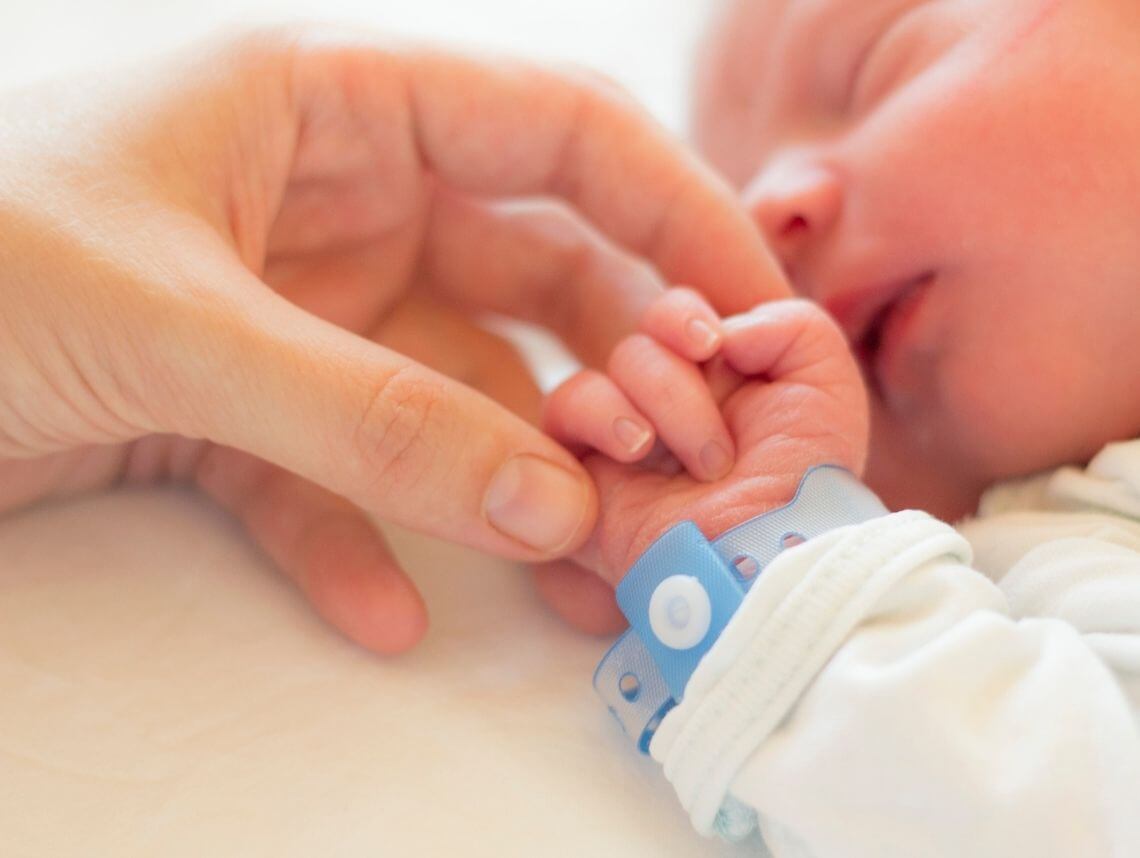
Gastroschisis is a relatively rare birth defect that develops in babies while still in the womb. This condition causes the intestines to be outside of the body. Although gastroschisis is often treatable through surgery, it also comes with special care needs for the baby. By learning more about this condition, parents with babies who have been diagnosed with this condition can become more involved and proactive with the care process.
What Is Gastroschisis?
Gastroschisis develops due to a defect that causes a hole in a baby’s abdominal wall. According to the CDC, this relatively rare condition develops in about 1,871 babies each year in the United States.
Commonly, this hole is beside the belly button and is usually small enough where only the intestines protrude out. In other cases, the can hole can be larger, causing the stomach and liver to be pushed outside the body.
This condition develops early in the pregnancy, and because the essential organs are outside the body it can increase the risk of irritation, swelling, and twisting.
Gastroschisis in Babies — Causes and Risk Factors
Medical researchers and doctors still do not fully understand the causes of gastroschisis. Potential contributors may include:
- Genetics
- Chromosomal changes in the womb
- Environmental factors
- Medications and substances taken by the mother during pregnancy
- Combinations of factors
There are certain factors that researchers have identified as causing an increased risk of gastroschisis in babies. These include younger-aged mothers, especially teenagers, and women who use tobacco products and/or consume alcohol while pregnant.
Symptoms and Diagnosis of Gastroschisis
The signs of gastroschisis in babies are usually first identified by a prenatal ultrasound, or after the baby is born. For babies with gastroschisis, there will usually be a visible hole in the abdominal wall near the belly button and a protrusion of the small intestine and possibly other organs near the umbilical cord.
This condition causes irritation of the digestive organs due to exposure to amniotic fluid. In some cases, this may hinder the baby’s ability to absorb nutrients while in utero.
Doctors will either diagnose gastroschisis in babies by ultrasound or due to abnormal results of a screening test for birth defects. The condition will also be immediately visible at birth.
Treatment, Potential Complications, and Special Care Needs
There is no way to treat this condition before birth, but mothers will receive dedicated monitoring to ensure that the baby develops as normally as possible.
After the baby is born, the abdominal cavity will typically be too small to place the protruding organs back inside, so surgical treatment will be required. Surgery will be needed to close the abdominal defect and slowly return the intestines to the abdomen (silo repair). After the organs have all been put back in the belly, the hole is closed. Prior to and after surgery, infants are fed through an IV line and are slowly introduced to normal feeding (total parenteral nutritional feedings). This allows the infant to receive adequate nutrition as it takes time for their bowel function to normalize.
Surgeons may need to perform the surgery in stages if there are multiple organs outside of the cavity.
One of the most frequent complications is low body temperature due to body heat escaping through the hole in the cavity. The baby’s temperature will need to be carefully monitored and measures taken to keep him or her warm.
Before and after surgical treatment, the baby will require IV feedings to ensure adequate nutrient delivery. Breast or bottle feeding must be introduced slowly to ensure the digestive system can safely adjust.
Babies will often have a normal prognosis after surgery, but there can be long-term issues that develop due to an abnormally small abdominal cavity or blood flow problems to the intestines. In relatively small cases, babies may need additional surgery and specialized pediatric care for these complications.
Reach Out to Care Options for Kids for Dedicated Home Care Assistance
At Care Options for Kids, we understand how challenging it can be to balance your life and the complexities of caring for a newborn with the added stress of a condition such as gastroschisis. That’s why our caring and dedicated team at Care Options for Kids is here for you.
Our specialized home care can give you the helping hand you need right in your home. We refer highly trained and compassionate nurses to provide personalized care for families. Whether you need just a few hours a day, or round-the-clock support, we are here for you.
Reach out to us to get in touch with a home health care professional. You can also request a free in-home assessment. We are happy to work with you to develop the best care plan for a wide range of conditions and diagnoses, including gastroschisis. If you or a loved one are considering Pediatric Home Health Care services in Florida, contact Care Options for Kids today. Call (888) 592-5855.
